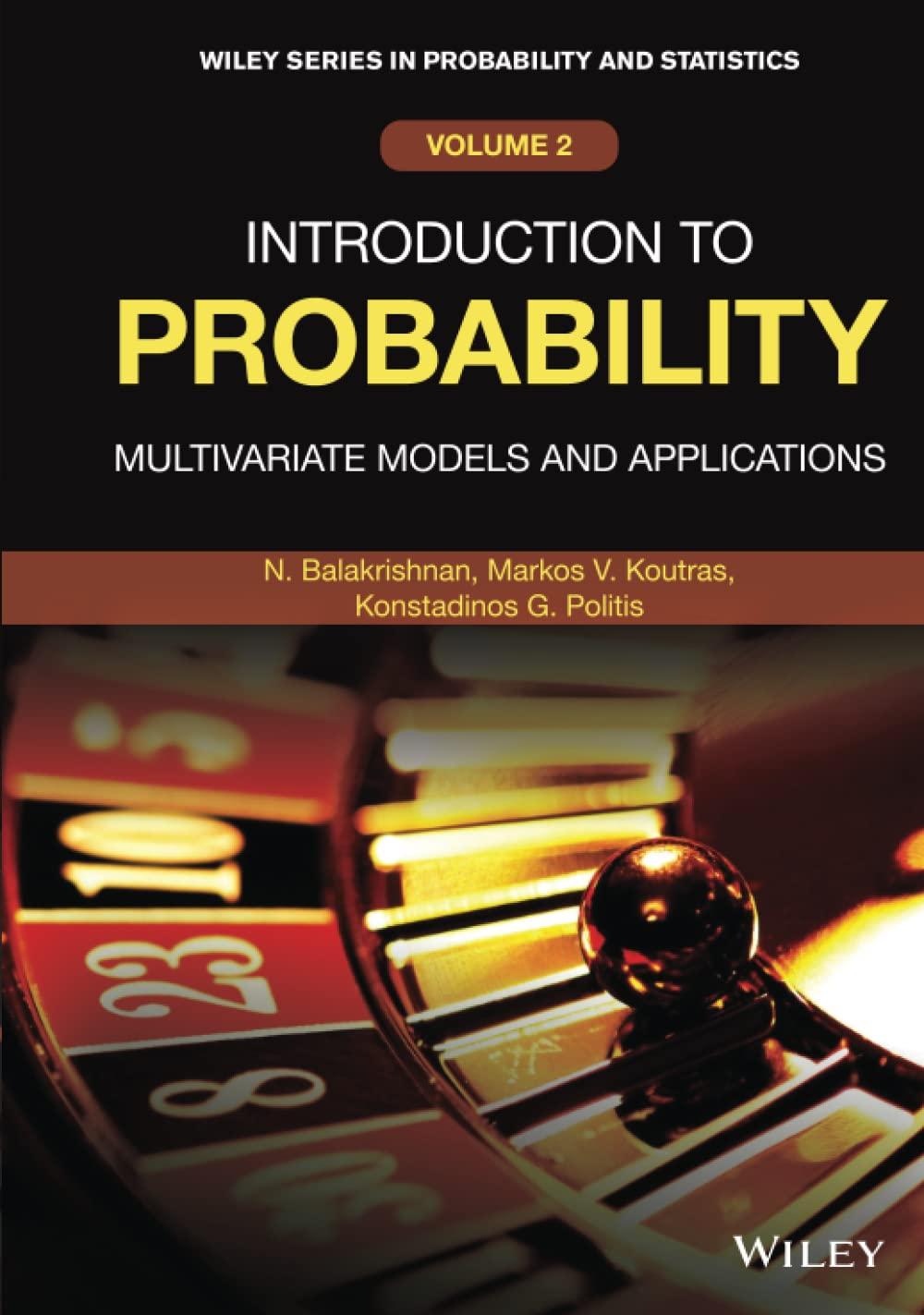Counting of all possible permutations of a set of elements (with or without repetitions) can be done
Question:
Counting of all possible permutations of a set of elements (with or without repetitions) can be done with the following sequence of commands:
In[1]:= perm=Permutations[{a,b,c}];
Print["The permutations of {a,b,c} are : ",perm];
Print["The number of permutations of {a,b,c} equals ", Length[perm]]
Out[2]= The permutations of {a,b,c} are :
{{a,b,c},{a,c,b},{b,a,c},{b,c,a},{c,a,b},{c,b,a}}
The number of permutations of {a,b,c} equals 6 In[1]:= perm=Permutations[{a,b,b}];
Print["The permutations of {a,b,b} are : ",perm];
Print["The number of permutations of {a,b,b} equals ", Length[perm]];
Out[2]= The permutations of {a,b,b} are :
{{a,b,b},{b,a,b},{b,b,a}}
The number of permutations of {a,b,b} equals 3 Consider now the following problem: three men and two women wait in a queue at a bank. If the order that these five persons arrived in the bank can be considered to be completely random, what is the probability that (i) men and women alternate in the queue?
(ii) the three men are standing next to each other?
(iii) the two women are in adjacent positions in the queue?
Solve each of the three parts above by a complete enumeration of the elements of the sample space for the experiment in question and another enumeration of the favorable outcomes in each case.
Step by Step Answer:

Introduction To Probability Volume 2
ISBN: 9781118123331
1st Edition
Authors: Narayanaswamy Balakrishnan, Markos V. Koutras, Konstadinos G. Politis






